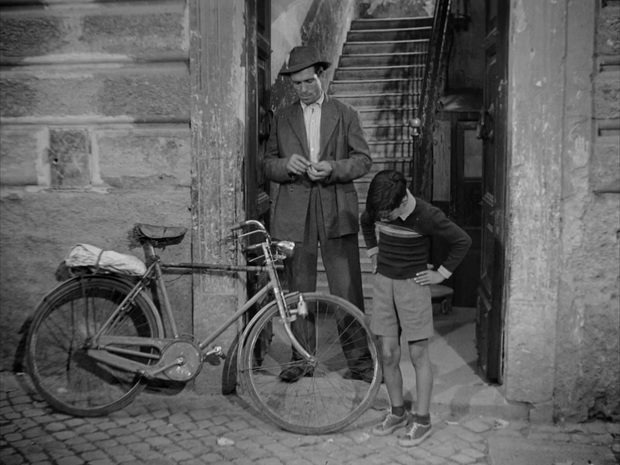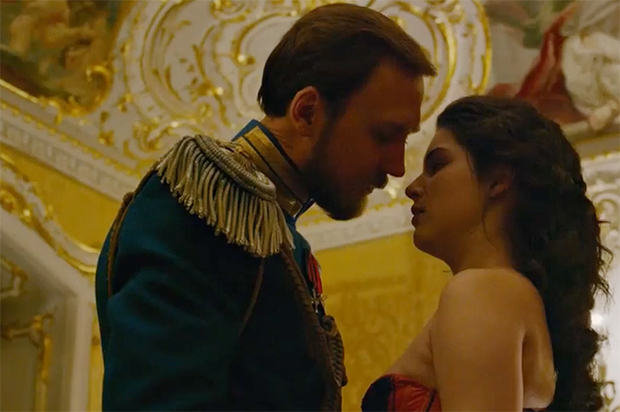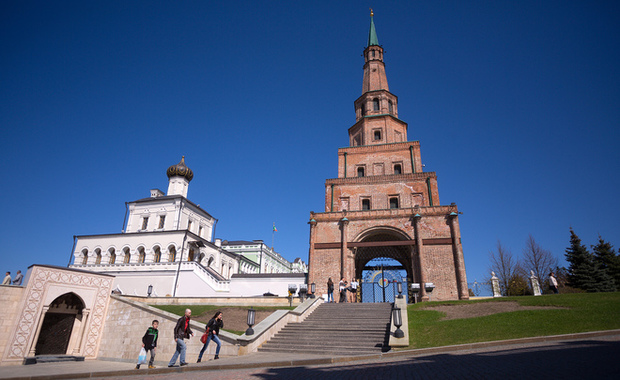Vadim Abdrashitov: ''Today hero is either something mass or marginal: killer, dealer, bandit…''
Soviet and Russian director about Kazan divested of cinematography, wrong tactics of creation of national films and Mathilda
Famous Soviet and Russian director, people's artist of Russia Vadim Abdrashitov who came to the 11 th literature and music festival Aksyonov Fest that ended yesterday thinks we should not set a task of developing regional and patriotic film. In a talk with Realnoe Vremya's reviewer, he told the tasks of modern Russian cinema, did not pass the scandal of Mathilda by and urged Tatarstan directors to shoot a film about Kazan.
When art turned its back on people…
Mr Abdrashitov, what are the perspectives of modern Russian cinema?
It is difficult to briefly characterise modern cinema. Movement vectors of cinematographic ideas are so different, the level of artistic mastery is so different that it is impossible to describe it all with one formula. Another thing is to formulate separate moments, general tendencies are perceptible. Tragically, a big number of films that I watch and understand I already saw it is shot. It is mainly a repetition of the past. Secondly, art in Russia like both theatre and cinema and visual arts, music mainly lost interest in individuals. Today hero is either something mass or individual but marginal: killer, dealer, bandit, police general, psycho, whore or just some freak, moron. I rarely meet an ordinary person like you and me both on pages of thick magazines and art. That person the attention to whom was born again after WWII. It was very clearly formulated by Italian neorealism, and people started to go to the cinema because they saw themselves. They understood they were interesting for artists. A certain breakthrough took place around the world, not only in Russia.
And art turned its back on ordinary people, then spectators thought: if I am not interesting for you, you are not interesting for me. They stopped going to the cinema, theatre, reading books. It is what is happening today. But, in this respect, I am dialectic and hope, I am even sure, that existence vectors of today's art will change and art will do what it should deal with – me, spectators and readers, my life, this is why I go as spectator, as another person. I think the new generation, and probably this generation of young directors already exists, will return the object of my belief, compassion or hatred. And I will get emotions from a piece of art. Yes, modern paintings are interesting, they have something. But they leave me indifferent emotionally.

''Nevertheless, Italian neorealism united all these spectators in focus: the private life of an ordinary person. It is a subject that absolutely deserved to be studied in art. It was amazing, a sensation! Who could imagine that the story of an unemployed man who steals a bicycle can be the basis of great neorealist film Bicycle Thieves.'' Photo: illuzion-cinema.ru
Should Russian cinema look for its own cinematographic language, aesthetics or cover roads travelled?
We should not set a task of looking for a new cinematographic language. The task formulated in general. We should look for our own material, so that it will be interesting for you as author. Somebody's fate, the country's fate… It is what should be looked for. One needs to listen to it, have a closer look, find it. One needs to aspire to it. The language is the second issue. It is a means of expression of what I want to say. And the very material will show what a language to use. Thank God, in this respect, Russia has serious conquests, there is diverse cinematographic poetry, there are different words in this language and different types, all in all.
You need to admit that the place where Italian neorealism was born is the space where people existed in one context – post-war destroyed Italy and destroyed ideals of Fascism. Today's Russia is more diverse. For instance, are your interests and spectators' demand as film director who worked in the USSR for many years different from that of the young who account for the majority of spectators?
First of all, we should not talk about the homogeneity of Italy after the war. There were fascists, anti-fascists, Marxists, the rich, the poor and others. Accounts were settled for a long time. Nevertheless, Italian neorealism united all these spectators in focus: the private life of an ordinary person. It is a subject that absolutely deserved to be studied in art. It was amazing, a sensation! Who could imagine that the story of an unemployed man who steals a bicycle can be the basis of great neorealist film Bicycle Thieves.
Life is diverse. Thank God, there is no homogeneity. Heterogeneity of today's spectator is also quite natural. However, there are some general interests, common feelings. For instance, the common feeling of anxiety. Today's life is very anxious in spite of what the state TV says to me. It is very anxious. It is a kind of paramilitary situation. The war is here, there, Ukraine, Syria. It is unclear what will happen tomorrow. The anxiety about tomorrow, kids, the absence of social ladders for the growth of the young, etc. There are many denominators and interests. There is a need to reflect the reality, the reality that was not invented, the real one. And when this need reaches a certain degree, I think there will be artists who will do this job.

''On the one hand, the story with Mathilda is quite idiotic. On the other hand, it already happened in history, literature and cinema. Nothing awful is happening. As strange as it might sound, it works like advertisement for the film.'' Photo: ura.news (a frame from Mathilda)
Films oriented to western spectators appear. Should Russian directors look for recognition abroad or should they receive recognition in the homeland first?
I don't think the majority of Russian films are oriented to western spectators. Not exactly. All the authors perfectly understand that today it is almost impossible to reach out to western spectators. Nobody needs us there and nobody is interested. I am talking about the creation of such a product that would be interesting for modern spectators. Who are these spectators? It is the young. In other words, it is an orientation to the modern young. It happens if a film succeeds. And the majority of the films don't have an addressee. Many films are made without considering what the modern audience is, etc.
Today modern cinema becomes popular not because of its creative component but events, scandals taking place around it. First of all, I am speaking about Mathilda. How does this kind of PR play into hands of modern Russian cinema?
On the one hand, the story with Mathilda is quite idiotic. On the other hand, it already happened in history, literature and cinema. Nothing awful is happening. As strange as it might sound, it works like an advertisement for the film. I have not watched the film. Even if I have watched it, it is clear that all the talks around the film are marasmus that strangely works like plug. It is such a very expressive individuality. What else?
Can such an occurrence as patriotic film become the exit from the difficult situation of Russian cinematography, in general?
What do you think patriotic film is?
A film that is directly linked with the country, reflecting the ideology, politics and what the majority of citizens of the country are oriented to, the goals it has.
Is the film The Cranes Are Flying patriotic?
Yes.
Why yes? A horrible story of a person's death is told there, how his fiancée cheated on him. Where is the country there? The government? Where is a patriotic film there? Is the screen version of Anna Karenina a patriotic film? I don't know what a patriotic film is. I am very sceptical about this terminology. There is a good and bad film. That's it! A good film is patriotic. Another question: a good humanised foreign film. Can it be called patriotic towards Russia? (A pause). It can! Is the film Bicycle Thieves patriotic? Of course! That's it.
''Kazan on the screen''
In your speech at the literary meeting within Aksyonov Fest, you talked about Tatarstan cinema. We are a multi-ethnic country. Should we develop the national or regional cinematography, as people say today?
You should not set a task of developing regional cinema. No way. Or developing patriotic cinema. Development can have only one axis – the axis of artistic integrity. I pitifully told that such a powerful culture, such a powerful country as Tatarstan doesn't have its own cinematography. Yes, there are separate successes, there are breakthroughs. But Tatarstan is a country where its own cinematography must exist. As its own literature, poetry exist, dramaturgy, its own cinematography needs to appear. But you don't need to reinvent the wheel. You need to make up a targeted group and send it to the Gerasimov Institute of Cinematography. So was it with Kazakhstani students who, consequently, became wonderful actors, so was it with Kazakhstani directors when Sergey Solovyov had a special admission who led to what is called by critics a new Kazakhstani wave. We have been talking about it for a long time – both cinematographers and rector of the Gerasimov Institute of Cinematography Vladimir Malyshev. We say but people answer here: ''No, we will do it on our own''. Please God, but it seems to me that one needs to be more responsible about it if your own cinematography is needed and the society has an opportunity to press the power and do what I am talking about.
Is not it a problem that there are few directors with Tatars roots?
No, of course! For instance, Kyrgyz cinematography. Kyrgyz cinematography had specifics. But Larisa Shepitko, Baltic documentary makers worked there, a group of Kyrgyz directors was created while working. Their nationality did not matter at all.

''I said the city is wonderful, the city is incredibly beautiful and has a very diverse nature, amazing territory, architecture, monuments, the embankment, the Kremlin. It all exists, but it is not on the screen.'' Photo: Roman Khasaev
And the last question. You went for a walk in Kazan. You already visited us. Would you like to shoot a film about our city?
If I could formulate it, I would just up and shoot it on my own. I said the city is wonderful, the city is incredibly beautiful and has a very diverse nature, amazing territory, architecture, monuments, the embankment, the Kremlin. It all exists, but it is not on the screen. For instance, all parts of Tallinn were shot. I have seen Petersburg, Tbilisi on the screen. But I have not seen Kazan. Why? It is such a nice and wonderful city! I like it very much. A question arises immediately: why don't you shoot? Doesn't life give a reason? That's the idea.
Thank you for the interview, Mr Abdrashitov!
Thank you!